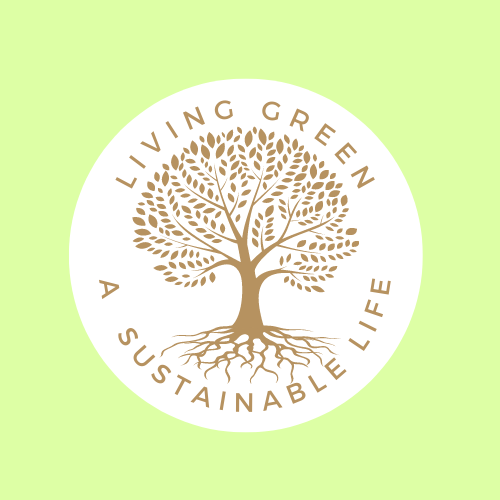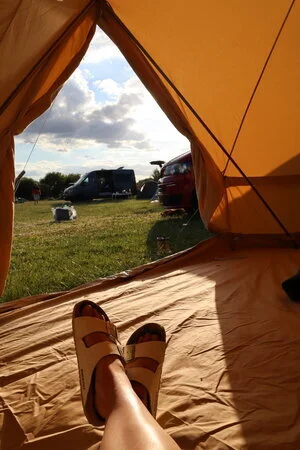How Community Could Be the Answer to a New Sustainable World.
If your reading this from the future, in a world that is post Corona Virus, well then I have so many questions for you!!! My biggest question, do we still have the community spirit? Do we still order bread as a street and get veg boxes from the local Green Grocer? Have we learnt that community is everything?
A year of climate action.
This past year as been a year of thinking a lot about the future. Sadly not always in a good way. Worrying about the Climate Emergency. Fighting to reverse it.
2019 was spent learning about sustainability. Wondering what the future held for our planet. Groups like Extinction Rebellion finally got the topic of the Climate Emergency on the table. Greta Thunberg got children across the world marching for their future.
2020 started with horrendous bush fires in Australia and flooding in Indonesia. It was as if the new decade slapped us in the face with this stark reality of what is to come.
I began to wonder if all the small swaps I made were even worth it? What more could be done to help people to act? And that is when I started thinking about community.
How can community help sustainability?
Pin me for later….
What was the point of buying a cloth nappy if it was going to be shipped across the world. Buying a reusable water bottle is it came from Amazon? Or eating Vegan food grown un-sustainably, in a way that degrades soil and doesn’t treat the farmers fairly. All of these things are intrinsically linked.
The more I learnt the more I realised that living plastic free is great, helping save plastic from the oceans but that doesn’t make it completely sustainable. Sustainability needs to come from every stage, from the manufacturing, the shipment, the sale and the disposal.
So how can community help?
Buying local and organic is what is going to help the plant. Supporting small and local businesses will help your local economy grow, therefore helping more people to shop locally.
Getting to know you neighbours, shopping in bulk together, that will help on transport emissions, cut down on plastic and save you all money.
Working around your privilege.
I can of course not talk about this kind of lifestyle without talking out privilege. It is a privilege to live in a community where there is a local green grocer, a butcher, a baker and a candle stick marker, (I kid we don’t have a candle stick makers. I do know a great one on Instagram though if your in need of one.) It’s a privilege to be able to afford to go to these places. I order a lot of our food from Abel and Cole too which again is a privilege to do so. But I do also believe there are ways around it should you feel all this is beyond your means.
Buying in bulk with your community or even pasta and rice at your local shops WILL save you money. For example I recently brought 11kgs of Tilda Basmati rice from a local Asian store for £20. We looked at the same brand in the local Sainsburys (it’s Mat’s favorite brand and will not deviate), per kg it would have worked out at £40 to buy the same quantity in smaller bags. Yes £20 seems like a lot of spend on rice at once but it is saving you 50%. If you still feel you don’t want to spend so much at once or store it why not think about splitting it with neighbours or family. The bigger bag is also saving a lot on packaging.
Now you may need the money you saved to put towards other things but if your able to put that money back into other areas of your shopping for example, a little extra spend that the butchers.
Being more conscious of what you eat will also help. Spend more on organic local meat at the butchers but eat less of it. Have you checked out some of my favorite Cheap Veggie Eats yet?
How can community help your carbon print beyond food?
Toy swaps at Christmas.
It’s amazing what you will find in your cupboards your children got 3 Christmas’s ago and never played with. Would another child in your community enjoy playing with it? I bet the family you give it to will have something you would love. If they don’t someone else will which makes organising a toy swap an amazing way to collect toys for Christmas and birthdays. Could this be done with people in your street? At your local playgroup? Or on a Facebook group? Our street had plans for a toy swap.
Then Corona Virus happened.
Strangely this helped our sustainable community thrive.
Throughout the Corona Virus lock-down I’ve been lucky enough that our street created a Whatsapp group. Someone on our street passed on to us their old scooters for the boys. We then decided to pass on the love and offer the boys old bikes. Two 6 year old’s from two different families are now riding around on them. I then saw one of the families who claimed one of the bikes put their child’s smaller bike on the group. Another smaller child is now in the street learning to ride without stabilizers.
Do you see? Each of these children will get so much joy out of the bikes/scooters/skateboards and not one of them cares that they were passed on and not new. Children do not care. In fact they relish in that fact it came from an older child they look up to. It is our hang ups that tells us because we didn’t buy new we are not providing for them. This is rubbish and capitalism at is finest. In fact by creating a community around our children, one where things are shared and passed on I would argue you are giving them something far greater than a shiny new box.
Don’t stop at toys.
Baby clothes, plant seeds, tools, books. There’s so many things we can share, borrow, give, pass on.
You may not like the idea of approaching your neighbours in person. Hey it only took an pandemic for us to create a Whatsapp group, website and online sharing apps to be set up, but we are lucky enough to have the power of communication at our finger tips. We can hide between screens to do the initial approach.
Create Facebook groups. I promise you will get interest. It doesn’t just have to be your street, it could be the local area (in walking distance of course.)
Will this community spirit carry on after lock down?
I sure as well hope so. I’m loving sharing seeds, plants, tools. Why buy a jet washer to use once a year when someone down the road has one you could borrow. Then they won’t worry about asking you to borrow something next time and the cycle continues.
Will we still have our Saturday afternoon G&T’s in the front garden talking to neighbours over the wall? I sure as hell hope so too. Except we won’t have to stay on this side of the wall, hopefully someday soon we can invite them in. Although the front gardens get the evening sun so maybe we’ll stick with it after all.
This Pandemic is scary and strange and uncertain but what it has also done is confirmed to me that sustainability needs to start in the community. We don’t need to spend spend spend when we can come together. Small business’s don’t need to collapse because of this awful disease if we pledge to support them. Food doesn’t need to travel through the air if we buy it locally where possible. We can have bread delivered to our door if enough of us order together and make it worth the bakers while. Because no matter who you are fresh sourdough sitting on your doorstep in the morning is a luxury no-one can turn down.
WIll you give building a community a try?
Will you reach out in your street? Create a Facebook group? Or simply pledge to visit your local small businesses?
Maybe your community is already coming together through this pandemic? I’d love to hear your stories.
Hannah xx
You also might enjoy…
Why we need to forget eco-friendly alternatives.












Changing your bank account could really help fight climate change. Here’s how and way.